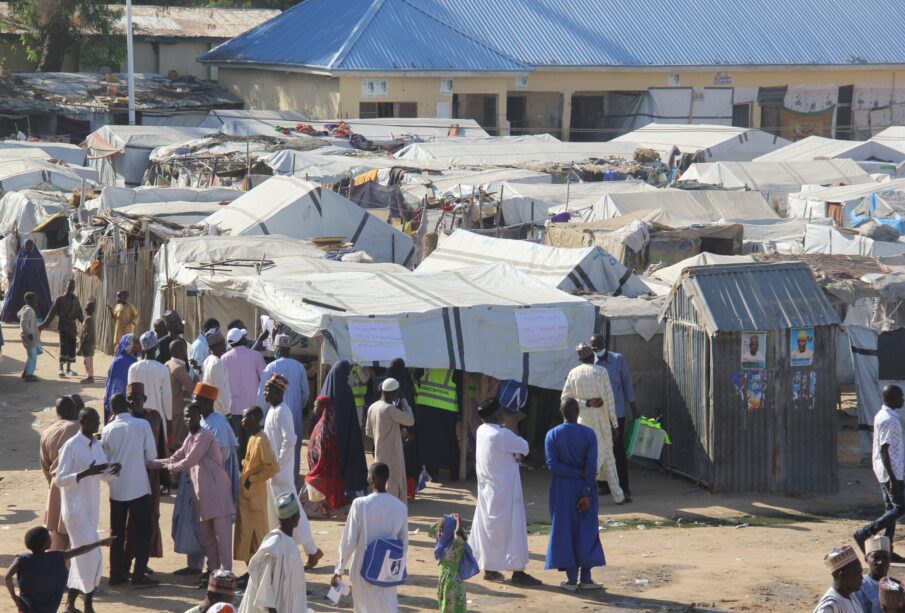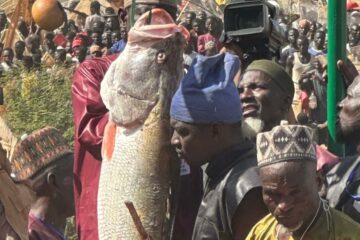
There is no gain in saying that Benue State is currently the hub of Internally Displaced Persons, IDPs, in the country. With about 17 or more IDPs camps housing over 1.5 million IDPs, including those sheltering in the host communities, the state is no doubt facing a herculean task catering to the needs of these persons of concern.
The IDPs were forced out of their ancestral homes following repeated attacks and siege by armed herdsmen who are bent on defying the extant grazing law in the state.
From Guma to Agatu, Gwer West, Kwande, Makurdi, Logo, Apa, Okpokwu, Bururku, Otukpo and other local government areas, LGAs, it’s all tales of woes as the rural Benue farmers who are known for their prowess in food production have vacated their ancestral homes and taken refuge in IDPs camps.
Though the present administration has pledged to have them relocated back home, but while that move is still being awaited, the IDPs remain confined in these camps, living on the support they receive from the state government, kind-hearted individuals and organisations.
Given the dire condition in the camps the IDPs are faced with the challenges of inadequate food and drugs supply, including insufficient sleeping spaces and other challenges that make life unbearable for them.
But in the mist of these challenges one notable issue is the high rate of new child births being recorded in some of the camps.
Findings indicated that while the IDPs live in dire conditions amid insufficient sleeping space, they still make out space to make babies.
Strange as it may sound, the reality is that new born babies are recorded in the camps in high numbers despite the living condition of the IDPs.
The development though, a reason for celebration for families in a normal living environment, is considered a source of concern in an IDPs camp as it puts a huge strain on the healthcare service there.
Besides, the new born are brought to a world of uncertainty in IDPs camps where access to proper health care services and feeding sometimes gets daunting leading to health challenges and even malnutrition as was the case recently at the Ortese IDPs camp in Guma LGA where cases of malnutrition were discovered among the children.
In fact, it was also discovered in that camp that over 200 new babies were given birth to in one month by displaced mothers taking refuge in that camp alone.
The alarming figure which left tongues wagging was indeed part of the findings of the Integrated Supportive Supervision, ISS, of the United Nations Children’s Fund, and the World Health Organisation, UNICEF/WHO Humanitarian Health Response, IDP, Outreach implemented by the Benue State Primary Healthcare Board, carried out at the Ortese and Ichwa IDPs camps in Guma and Makurdi local government areas, respectively.
It was discovered that the high figure was a function of the fact that in the midst of their distress, the IDPs find pleasure and happiness in sleeping with their spouses.
This was also alluded to by one of the IDPs, who identified himself as Anngu, and also claimed to be a father of two and resides in the camp with his family.
According to him: “Though we live in the camp we find space to sleep with our wives. When we do that we are happy with each other and it helps us reduce the pains we are going through.
“So we cannot be asked to stop because we are living in camp. The only thing is that we must ensure that our wives protect themselves from being pregnant though some men don’t like the idea of their wives not giving birth.
“As for me I came to the camp about two years ago with my wife and two children and I sleep with my wife, but I ensure that she uses the family planning products that were given to her by the health care people. But the truth is that many are not using it.”
Speaking on the development, the Executive Secretary of the Benue State Primary Health Care Board, Mrs. Grace Wende, who visited the camp, said the number of new births was quite high and the government would need to do something about it.
According to her: “I saw a very interesting sight. I’ve been in these camps often as part of our coordination beat and as part of the main role of primary health care.
“We are part of the major leading partners in supporting the IDPs camps in terms of providing healthcare personnel who will be providing services to these various camps.
“Today I saw many pregnant women and young children and it seems that there is very high level of fertility and child birth within these camps.
“Today alone we noticed that there are 200 new births per month. It is quite high, and government needs to do something about it.
“But from my discussion with them it seems that they are not utilising the family planning products that were given to them. So we need to intensify demand creation generation, especially among the men because they took the problem there. The women are willing but their husbands are resisting those family planning methods.
“The 200 births I am talking about is just in Ortese IDPs Camp. I am not talking about any other. So, 200 babies delivered in one camp in one month is huge. And we have not gotten the situation in other camps.
“Our findings indicated that the women there are helpless. Some women are remarrying within the camp, their husbands are not there; the husbands are also remarrying. They are also, sort of negotiating sex with the women within the camp. Those things are things that require that we intensify our advocacy and decision making within the camps.
“I have already talked with the State Emergency Management Agency, SEMA, and the Camp Coordinators to see how we can go about it. We will target the advocacy on the men for now,” she added.











